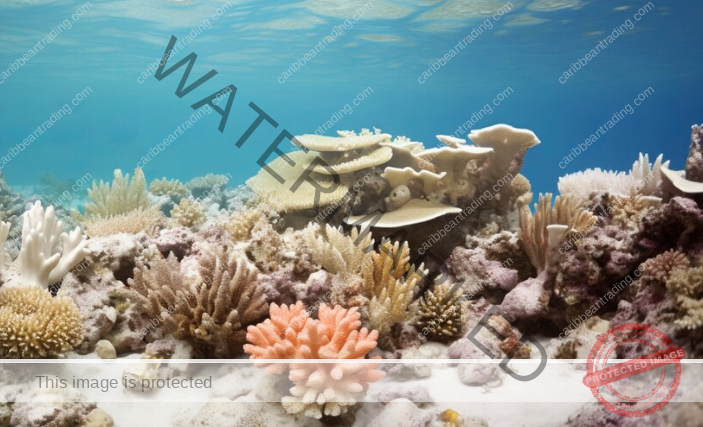Caribbean History
Caring for the Ecosystem. What is the situation in the Caribbean?
The Caribbean is renowned for its stunning beaches, colorful coral reefs, and plush rainforests, making it a critical part of the world’s ecological heritage. However, this paradise faces full-scale environmental demanding situations that threaten its ecosystems and the livelihoods of the people who depend on them. This article explores the current country of the Caribbean atmosphere, the elements contributing to its degradation, and the efforts being made to guard and restore this critical area.
The Importance of the Caribbean Ecosystem
The whole location is known for being the home of a pervasive and diverse variety of ecosystems, which are all very lovely (such as coral reefs, mangroves, seagrass beds, and tropical rainforests!). These ecosystems are vital for tourism and ensuring the arena stays as a wholesome location to live in. Such locations offer critical services, like coastal safety and carbon sequestration, and assistance for fisheries and tourism industries. The coral reefs are frequently called the “rainforests of the ocean” because of their biodiversity and defense to coastal regions from storms and erosion.
Threats to the Caribbean Ecosystem
Climate Change
The Caribbean is highly vulnerable to the impacts of climate change. Rising sea temperatures, ocean acidification, and increasing frequency and intensity of hurricanes pose severe threats to coral reefs and other marine life. Coral bleaching, a phenomenon where corals expel the algae living in their tissues due to stress from warmer water, has become increasingly common, leading to widespread coral mortality.
Pollution
Marine pollution includes many things, such as plastic waste, chemical substances, and agricultural runoff. They are a first-rate hassle in the Caribbean. Plastics can entangle marine animals or be ingested, central to injury or loss of life. Chemicals and vitamins from agriculture can motivate dangerous algal blooms that burn up oxygen within the water and create useless zones, affecting fish and other marine organisms.
Overfishing
Overfishing is another sizable risk, depleting fish populations and disrupting marine food webs. Illegal, unreported, and unregulated (IUU) fishing exacerbates the problem, making it challenging to manage fish shares sustainably.
Coastal Development
Rapid and frequently unplanned coastal development has led to the destruction of essential habitats, including mangroves and seagrass beds. These habitats are crucial for retaining biodiversity, protecting seashores from erosion, and supporting fisheries.
Tourism
While tourism is a prime financial driving force in the Caribbean, it also places stress on the environment. Creating hotels and infrastructure can cause habitat destruction, and the inflow of vacationers can bring about pollutants and expanded waste.
Efforts to Protect and Restore the Caribbean Ecosystem
Despite those challenges, numerous projects and organizations are dedicated to preserving and restoring the Caribbean environment. These efforts involve an aggregate of local community actions, authorities policies, and global collaborations.
Marine Protected Areas (MPAs)
Establishing MPAs is a crucial strategy for conserving marine biodiversity. MPAs restrict human activities in designated areas to protect habitats and species. The Caribbean has several MPAs, such as the Bonaire National Marine Park and the Belize Barrier Reef Reserve System, which help to safeguard critical ecosystems.
Sustainable Fisheries Management
To fight overfishing, various Caribbean countries are enforcing sustainable fisheries management practices. These encompass setting trap limits, defensive nursery regions, and promoting responsible fishing practices. Organizations like the Caribbean Regional Fisheries Mechanism (CRFM) are working to coordinate nearby efforts and promote sustainable use of marine assets.
Coral Restoration Projects
Coral recuperation initiatives intend to rehabilitate damaged reefs by developing and transplanting corals. Techniques, which include coral gardening and using artificial structures to create new reef habitats, are being hired. Organizations like the Coral Restoration Foundation are the main ones attempting to restore coral reefs inside the Caribbean.
Pollution Reduction Initiatives
Tackling marine pollutants calls for both nearby and international efforts. Initiatives like the Caribbean Plastic Waste Management Project are operating to lessen plastic waste via advanced waste management practices, public schooling campaigns, and selling options to unmarried-use plastics.
Climate Change Adaptation
Caribbean nations are actively working to adapt to the impacts of climate change. This includes building climate-resilient infrastructure, restoring natural buffers like mangroves and wetlands, and developing early warning systems for extreme weather events. The Caribbean Community Climate Change Centre is central in coordinating regional climate action.
Waste Cleanup Efforts
Efficient waste control and cleanup tasks are critical for maintaining the Caribbean’s fragile ecosystems. Various businesses and community organizations actively run to lessen pollutants and remove waste from terrestrial and marine environments.
- Beach Cleanups: Community-led seaside cleanups are a standard and robust method for eliminating plastic and other debris from coastlines. Events like International Coastal Cleanup Day see volunteers accumulate and report litter, raising recognition and selling cleanser surroundings.
- Marine debris removal: Specialized efforts are made to cast off particles from the sea, consisting of deserted fishing equipment, plastics, and other pollution. Programs just like the Ocean Conservancy’s Trash Free Seas Alliance paintings to combat marine debris through cleanup operations and policy advocacy.
- Recycling and Waste Management Programs: Improving waste management infrastructure and promoting recycling are essential to reducing pollution. Initiatives, including the Zero Waste Caribbean mission, intend to reduce waste technology and encourage recycling practices across the area. In addition, entities, including health centers, often use a clinical waste bin to avoid polluting the surroundings.
Challenges and Opportunities
While colossal development is being made, there are many challenges to take care of. Limited financial resources, lack of technical understanding, and political instability can avert conservation efforts. Additionally, the interconnected nature of the ecosystem approach that moves in one place will have far-reaching effects, making coordinated efforts across borders critical.
However, there also are many possibilities. The growing international focus on environmental problems has brought about accelerated funding and assistance for conservation initiatives. Advances in generation, consisting of far-flung sensing and genetic studies, offer new gear for tracking and restoring ecosystems. Furthermore, the Caribbean’s rich cultural background and conventional know-how provide treasured insights into sustainable practices.
The Role of International Cooperation
International cooperation is essential for addressing the demanding environmental situation facing the Caribbean. Many of the threats, including climate exchange and marine pollutants, are global and require coordinated efforts. Organizations like the United Nations Environment Programme (UNEP), the Global Environment Facility (GEF), and the World Bank support Caribbean countries via investment, technical help, and potential building.
One fantastic instance of international cooperation is the Caribbean Challenge Initiative (CCI), which brings together governments, agencies, and civil society to guard 20% of the Caribbean’s marine and coastal ecosystems in 2020. Although formidable, tasks like CCI reveal the electricity of collaboration in accomplishing conservation desires.
Conclusion
The Caribbean’s ecosystems are in significant danger. However, there may be hope. Through a mixture of nearby actions, local cooperation, and international support, efforts are being made to guard and restore this critical area. By addressing the primary reasons for environmental degradation and promoting sustainable practices, the Caribbean can hold its herbal history for future generations.
Protecting the Caribbean atmosphere is critical not only for the region’s biodiversity and the livelihoods of its humans but also for the planet’s fitness as an entire. As we strive to stand against international environmental challenges, the Caribbean has valuable training in resilience, adaptation, and the significance of keeping our natural environment international.







